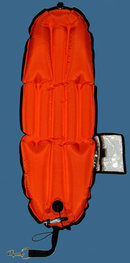Dave brings up several important points
and I especially like the one about joining DAN ... http://diversalertnetwork.org/ ... they are a great organization, doing much of the research that keeps divers safe
... Personally, I will not go diving without having their accident insurance policy , and at the highest level they offer, Preferred ... http://diversalertnetwork.org/insurance/compare.asp
at the cost of one fast food meal a month ($8.75 that's including DAN membership) It's hard to justify a lessor plan, or not getting one at all
and I especially like the one about joining DAN ... http://diversalertnetwork.org/ ... they are a great organization, doing much of the research that keeps divers safe
... Personally, I will not go diving without having their accident insurance policy , and at the highest level they offer, Preferred ... http://diversalertnetwork.org/insurance/compare.asp
at the cost of one fast food meal a month ($8.75 that's including DAN membership) It's hard to justify a lessor plan, or not getting one at all






